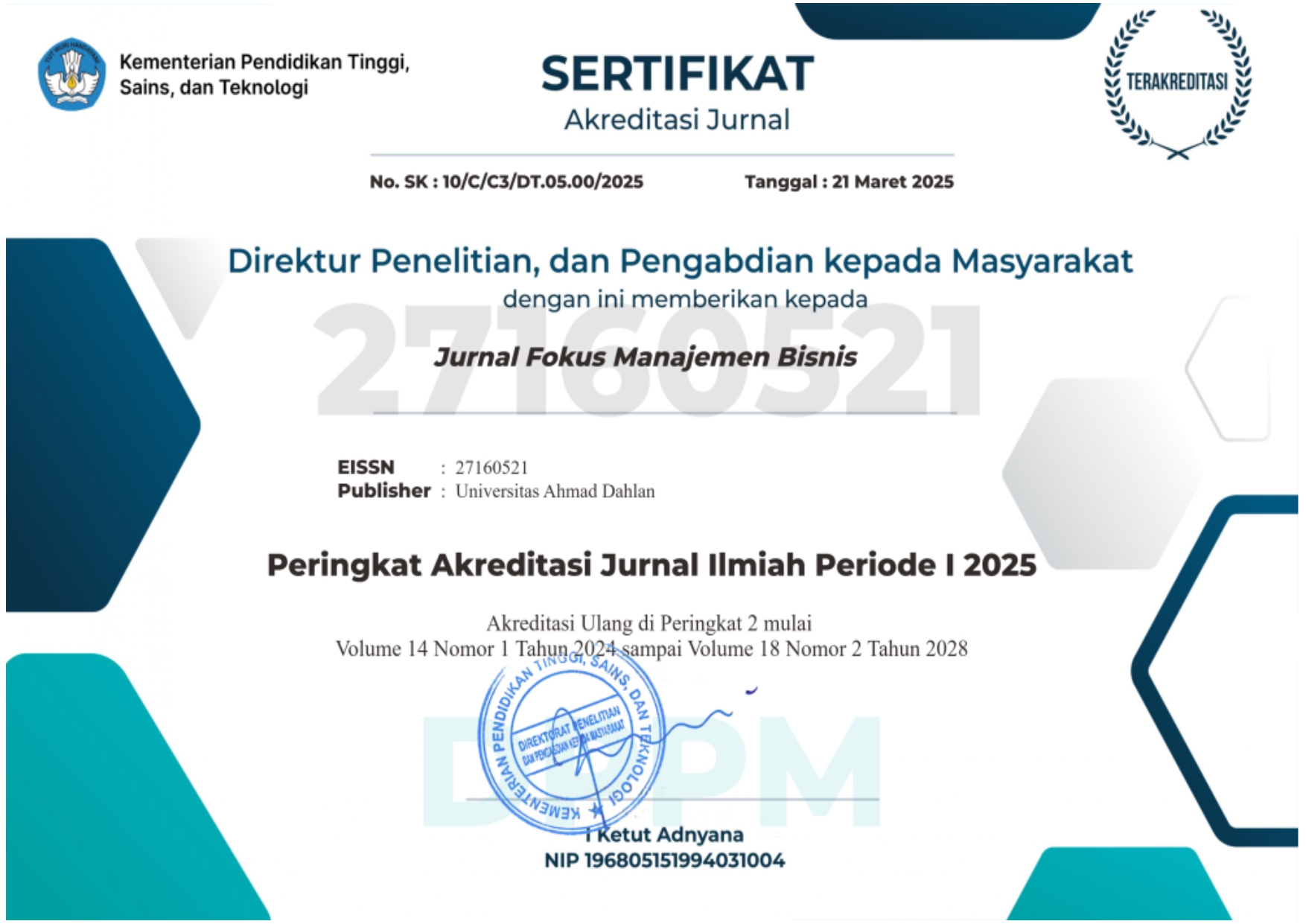FAKTOR KUNCI KEBERHASILAN MANAJEMEN RANTAI PASOKAN PENANGANAN BENCANA ALAM DALAM PERSPEKTIF PEMERINTAH
DOI:
https://doi.org/10.12928/fokus.v10i1.1675Keywords:
Humanitarian Supply Chain Management, Disaster Supply Chain Management, the Local Board for Disaster Management (BPBD)Abstract
Disaster supply chain management is different from the supply chain management of commercial organization because of the high level of uncertainty. The high level of uncertainty significantly affects the availability of logistic supplies that are needed by the victims of the disaster. This study discovers the key success factors of the disaster supply chain management based on the perspective of the government. The re- search specifically study the Government of the D.I. Yogyakarta that are represented by Badan Penanggulangan Bencana Daerah (BPBD). Due the fact that Yogyakarta as one of the regions that have the high risk of catastrophic nature in Indonesia. The study will be carried out in a qualitative methodology by conducting deep interview with the Representative of Logistics Department in BPBD. The results of in-depth interviews with four representative of BPBD found that there are six key success factors of disasater management supply chain management which are : (1) Quality of the TRC Team Assessment Results; (2) BPBD Coordination with Government and Non-Government; (3) Effective Rules and Regulations; (4) Character and Attitude of the Community in Dealing with Disasters; (5) BPBD Warehouse Inventory Management; (6) Management Information Systems and Data Updates.
References
Christopher, M. and Towill, D. (2001), "An Integrated Model for the Design of Agile Supply Chains", International Journal of Physical Distribution & Logistics Management, Vol. 31 No. 4, pp. 235-246.
Daniel, D. R. (1961). Management Information Crisis. In: Harvard Business Review, 39(5),
111-116.
Gattorna, J. 2006. Living Supply Chains: How to Mobilize the Enterprise Around Delivering What Your Customers Want. Financial Times Prentice Hall.
Gunasekaran, A. and Ngai, E.W.T., 2003, The Successful Management of a Small Logistics Company, International Journal of Physical Distribution & Logistics Management, Vol. 33 No. 9, pp. 825-42.
Huotari, M.-L. and Wilson, T.D., 2001, Determining Organisational Information Needs: the Critical Success Factors Approach, Information Research, Vol. 6 No. 3, pp. 109-187.
Power, D.J., Sohal, A.S. and Rahman, S-U., 2001, Critical Success Factors in Agile Supply Chain Management, International Journal of Physical Distribution & Logistics Management, Vol. 31 No. 4, pp. 247-65.
Rockart, J.F., 1979, Chief Executives Define Their Own Data Needs, Harvard Business Review, Vol. 57 No. 2, pp. 238-41.
Samii R, Van Wassenhove LN, Kumar K and Becerra-Fernandez I, 2002, Choreographer of disaster management: preparing for tomorrow’s disasters, No.06/2002-5039.INSEAD, Fontainebleau, France.
Schulz, S.F. and Heigh, I., 2007, Logistics Performance Management in Action – Design and Piloting of a Development Indicator Tool for Regional Logistics Units of IFRC, Proceedings of the 1st Cardiff- Cranfield Humanitarian Logistics Initiative Conference, Shrivenham.
Taylor, D. and Pettit, S.J., 2009, A Consideration of the Relevance of Lean Supply Chain Concepts for Humanitarian Aid Provision, International Journal of Services Technology and Management, Vol. 12 No. 4, pp. 430-44.
Tomasini, R.M. and Van Wassenhove L.N., 2004, A framework to un-ravel, Prioritize and Coordinate Vulnerability and Complexity Factors Affecting a Humanitarian Response Operation, Working Paper No.2004/41/TM.INSEAD, Fontainebleau, France.
Tomasinia, R.M and Wassenhove, L.N., 2009, From Preparedness to Partnerships: Case Study Research on Humanitarian Logistics, International Journal in Operation Research, Volume 16 (1), pp. 549-559.
Tuominen, M. and Korperla, J. 1996. A Decision Support System for Strategic Issues Management of Logistics. International Journal of Production Economics, vol. 46-47 (1), pp. 605-620.
UNDP, 1993, Logistics, 1st ed., United Nations Development Programme, Geneva
Downloads
Published
How to Cite
Issue
Section
License
Authors who publish with this journal agree to the following terms:Â
- Authors retain copyright and grant the journal right of first publication with the work simultaneously licensed under a Creative Commons Attribution License that allows others to share the work with an acknowledgment of the work's authorship and initial publication in this journal.
- Authors are able to enter into separate, additional contractual arrangements for the non-exclusive distribution of the journal's published version of the work (e.g., post it to an institutional repository or publish it in a book), with an acknowledgment of its initial publication in this journal.
- Authors are permitted and encouraged to post their work online (e.g., in institutional repositories or on their website) prior to and during the submission process, as it can lead to productive exchanges, as well as earlier and greater citation of published work (See The Effect of Open Access).






